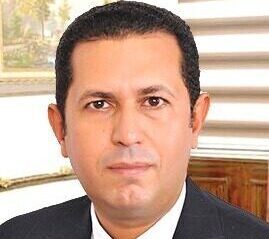Egypt’s participation in the World Government Summit (WGS) in Dubai last week reflects the weight of its influence in the region. The speech by President Abdel Fattah El Sisi on the first day of the summit last Monday highlighted many realities about Egypt’s past and present situation and how this nation confronted the challenges since the 2011 Revolution, moving towards construction, development and combating terrorism – all with tremendous support from its Arab brethren.
In speech to the WGS, the president extended his thanks to those Arab countries that backed Egypt during that period.
Without the support of our brothers in the UAE, Saudi Arabia and Kuwait, Egypt would not have stood up again,” the president said. This was one bright spot amidst the myriad challenges that Egypt faced after 2011, bringing it back from the brink of collapse.
On the challenges that beset Egypt from 2011 until 2013, President Sisi said Egypt’s strategic cash reserve was a cause for concern. During this period, the cash reserve was declining due to the cost of the country’s needs for oil derivatives, President Sisi said, referring to the unwavering support of the UAE during this difficult phase.
“UAE President Sheikh Mohamed bin Zayed Al Nahyan made a visit to Egypt on July 2013. At that time, there was an energy crisis and long queues were forming at petrol stations. What the UAE president did was what Egypt wanted, but it was unasked. We found ships carrying gas and fuel changing their course from the Mediterranean to the Red Sea,” the president said.
“To be fair, Sheikh Mohamed co-ordinated with our other Arab brethren in the support they provided to Egypt at that time.”
The president’s remarks boldly revealed the realities. He voiced gratitude and respect for those who supported Egypt and any other Arab country at critical times. He also expressed his deep appreciation for the Egyptian citizen’s role during this difficult time when the world is witnessing an economic crisis.
“There was speculation that Egyptians could not withstand their economic pressures. But they did. Inflation is high not only in Egypt but also in the whole world. Egyptians have truly proved their steadfastness and patience in tough economic times,” the president said.
“This is yet another bright spot that led Egypt on the way to construction and development,” the president went on to say.
Egypt’s recovery from chaos and march to development was in the WGS spotlight. The Egyptian state has managed to confront all challenges and conspiracies to proceed towards building a new republic.
Egypt has succeeded in securing sufficient foreign reserves after they fell to $13.4 billion in 2013. It has also achieved a breakthrough in the electricity sector as it recorded a surplus of 13,000 megawatts in 2020.
According to official figures, Egypt’s growth rate in electricity exports reached 116 per cent, leading to an advance of 44 places in the Total Power Quality Index. Egypt also jumped in the global classification for the road quality from 113 to 28. Within seven years, Egypt established a new network of roads and bridges. This is in addition to the electric train project and new projects on the underground metro network. Egypt’s achievements throughout the last seven years can be replicated by any country that wants to meet its challenges, move towards development and construction, and provide a decent life for its citizens.
Mohamed Fahmy is the editor-in-chief of The Egyptian Gazette and the Egyptian Mail newspapers






Discussion about this post